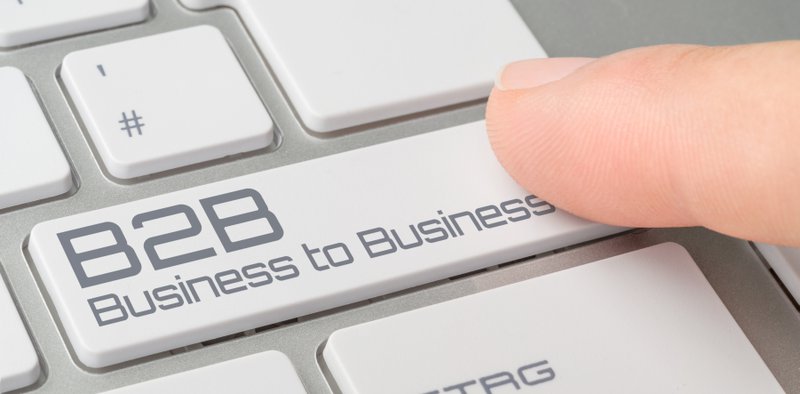In a world upended by a pandemic, the need for a marketing transformation that puts digital at the center has become urgent and more pronounced. And as much as a more mature B2B eCommerce model is a sudden necessity, it also presents an opportunity. By embracing a new approach, organizations have the opportunity to boost sales by learning more about clients and their needs, building enduring relationships, and creating digitally integrated and digitally-enabled customer buying journeys.
B2B eCommerce provides an impressive range of benefits for businesses. These include being open for business 24/7 (eliminating barriers in the form of limited office hours and location); it's easier for your customers to buy through connected devices; you can provide up to date product information and support content; analyze data to leverage opportunities to cross-sell and up-sell; and increase customer loyalty by providing intuitive options for self-serve re-ordering, tracking, online payments, etc.
If you're still hesitant about B2BeCommerce, check out these statistics from Forrester Research:
- B2B eCommerce transactions in the United States alone are expected to hit $1.8 trillion by 2023.
- 60-75% of people prefer to research purchases before engaging a salesperson
- Millennials primarily use mobile devices & social media to research products
- 73% of Millennials are involved in product/service decision-making at businesses and are now the largest generation in the workforce
B2B eCommerce platforms offer your operation the agility to adapt to various market conditions that can help strengthen your online presence so you can attract more potential clients and resellers. The process, though, has to be ongoing. This continuous cycle of optimization may start with data-driven customer insights, for example, leveraging them to inform design and technology platform choices, but then it circles back—back to the data and analytics to see what’s working (and what’s not) and implement the next round of improvements. These changes will help organizations become less static and more nimble so they can better manage whatever unexpected changes might happen next.
That’s the benefits and part strategy covered. But what about your sales team? An important consideration has to be the impact on your sales staff before you implement a B2B eCommerce solution. With a myriad of misconceptions about B2B eCommerce percolating among teams, it’s crucial that these are put to bed effectively so you can get your sales teams on board and change the company culture that’s preventing you from providing an experience customers want to use and return to use.
Common Misconceptions About B2B eCommerce
Despite the many benefits that B2B eCommerce offers—particularly when it comes to increasing sales efficiency and expanding customer reach—sales teams are still wary.
Let’s run through the major misconceptions.
It Will Eliminate Sales Teams
The success of many B2B companies is often tied to a strong sales team, which sometimes results in owners and managers resisting eCommerce since they see it as competing with those employees. But the B2B market is rapidly changing. More and more, business buyers prefer shopping and ordering online. This means they are looking to browse your products thoroughly and read product specs and reviews before they inquire and make a purchase.
As such, your online storefront is not necessarily taking away the need for sales agents. Rather, it serves as an initial customer touchpoint where clients can learn more about your offerings. It helps salespeople sell more and compete better. Start by explaining to your sales team how eCommerce can make it easier for them to do their jobs while presenting an opportunity for your company (and them) to make more money.
B2B Customer Service Can’t Be Managed Online
The expectation of quality customer service remains the same when shopping online for B2B products. Existing eCommerce tools allow for excellent customer communication via email, phone, text message, or online chat. Today’s buyers have a do-it-yourself mentality so it’s crucial to offer a self-service information center. In the past, personal relationships were integral to B2B customer satisfaction, but today, the key to success is the need for speed. Customers expect near-immediate answers to questions and resolutions to queries, and if your company cannot provide this level of service, they will find another outfit that can.
B2B Products Can’t Be Sold Online
It used to be that businesses had to find suppliers and set up meetings to negotiate purchases. However, with the pandemic forcing businesses to operate remotely, many have turned to online transactions to procure what they need for their operations. This shift in demand only goes to show that B2B companies can also benefit from B2B eCommerce sites. With eCommerce, you can build online engagement and make it simpler for new and existing customers to browse (and purchase!) your products.
B2B Buyers Don’t Prefer Online Transactions
The days of relying on sales representatives for product information and pricing is long gone. Nowadays, millennials conduct in-depth online research before making purchases—and they are accustomed to being able to order online. This demographic of buyers—an entire generation of digital natives (ages 18-24)—now accounts for almost half of B2B online researchers.
According to McKinsey, 70%-80% of B2B buyers now prefer digital interactions over face-to-face meetings when it comes to transacting with suppliers. They expect the convenience of their personal online shopping habits to extend to the business world, and prefer to shop independently with 24/7 research options and complete control over their purchasing decisions.
How to Get B2B eCommerce Buy-In From Your Sales Team

Securing support for an eCommerce platform from your sales department depends on your approach and how you communicate it. Explain that a B2B eCommerce site can help sales teams, not compete with them.
Here are some strategies you can use to help you change perceptions:
Model Streamlined Workflows
Empower your B2B sales representatives with digital tools showing how it enables them to work more efficiently and close more deals faster. Point out that B2B eCommerce platforms enable self-service and are accessible 24/7, eliminating the need to call a sales representative or filling out an order request, making their overall jobs easier.
Focus on Customer Engagement and Satisfaction
Engagement tools such as live chat and chatbots address customer questions in real-time, via the same platform where they place orders. This enhances the buyer journey by encouraging them to access service from a digital medium rather than requiring them to use email, phone, etc. Train your staff to use these eCommerce tools to assist in locating items and information, tracking transaction histories and order statuses, and checking product availability… all to improve customer satisfaction.
Offer B2B eCommerce Commissions for Sales
If these incentives are a key part of your team’s compensation package, they may feel threatened by the move to an eCommerce platform. One way to overcome this hurdle is to give your sales staff commission for sales placed by their accounts online. The eCommerce site becomes a tool where salespeople can process orders easier and quicker (and make more money) than before. And your company can get more orders through up-selling related products while customers are on your site, with sales teams earning even more commission.
Expand and Enhance Account Management
Highlight how eCommerce can help them focus on higher priority accounts. B2B eCommerce channels provide convenient self-service options for your customers. With these, they can quickly make purchases without the need to contact sales agents. In turn, sales agents can devote more time towards finding and converting new leads and assisting customers who want to negotiate specialized orders and the like.
Overall Benefits of B2B eCommerce Adoption
Leveraging eCommerce for your B2B operations not only helps your sales agents become more efficient; it also has wider business impact.
It improves operational efficiencies, opening your doors to new markets and customers without the costs associated with a brick and mortar operation. A B2B eCommerce platform creates enhanced customer experiences to make the buying journey seamless. It enables self-service/self-management options while facilitating and nurturing real-time buyer/supplier relationships.
B2B eCommerce provides the ideal platform for a business to sift through the analytics to make better business decisions with in-depth analysis of sales effectiveness. Data analytics makes it further possible to adopt a personalization functionality by using data about your customers to tailor your website content according to similar characteristics and purchasing history.
Shifting from a traditional sales setup to a digital one enables you to compete in the new market. Millennials and Gen Z employees are rapidly entering the workforce and taking positions with B2B buying organizations with 73% of 20 to 35-year-olds making major purchase decisions at their companies. Successful businesses flourish by understanding their market and how best to reach them. Without an eCommerce approach to sales, B2B sellers risk losing their existing and potential clients to competitors who have taken the digital leap.
Help Your Sales Team Make the Most Out of B2B eCommerce
B2B eCommerce adoption can be tricky, but it’s a smart solution for companies who are looking to boost sales and stay competitive in a changing world. Plus, with more companies rolling out data-driven sales approaches, it only makes sense to utilize digital-first solutions to avoid getting left behind.
Fortunately, companies looking to compete for market share on a global stage and increase revenue do not have to hire an entire development team or spend a fortune to launch their B2B eCommerce channels. By partnering with Zobrist, you get a suite of state-of-the-art solutions to help you extract maximum benefit from your B2B eCommerce platform. Instead of just tediously managing orders, reps have the freedom to manage relationships with their customers. This freedom from manual processes cuts lengthy shipping and delivery schedules and improves customer satisfaction.
Zobrist will help you connect to your target audience with a mobile, responsive, and fast-loading website complete with personal content and the business tools for inventory management, fulfillment, ERP, and more to streamline your back-office operations.
Whether you need to start from scratch or want some help optimizing your existing system, our team has the expertise and knowledge necessary to get you started on an integrated solution aligned with your company’s goals. Get in touch with the Zobrist team today and see how our customized solutions will allow you to take your online presence up a notch without spending too much time or money on complicated processes.




